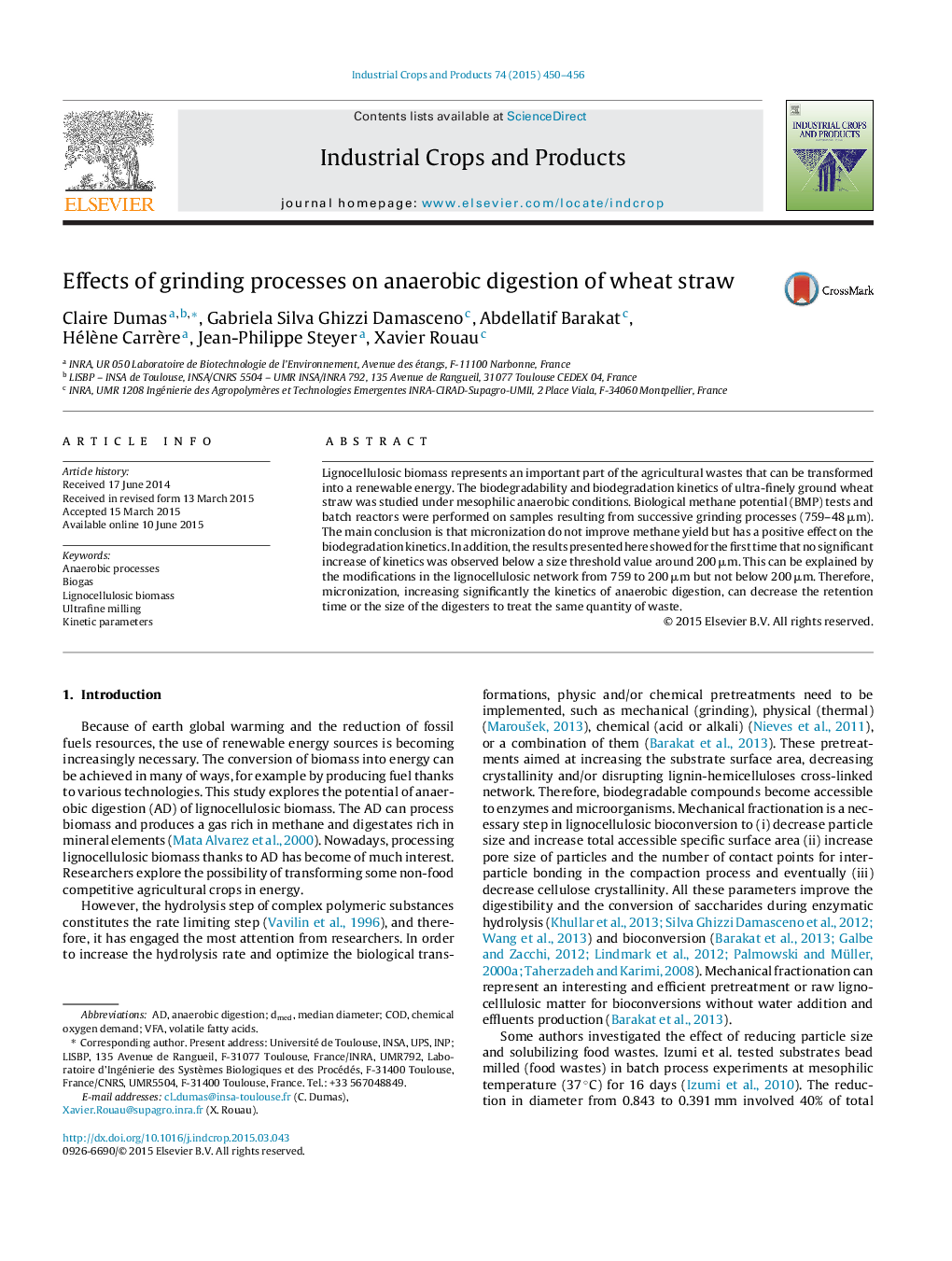| Article ID | Journal | Published Year | Pages | File Type |
|---|---|---|---|---|
| 6376037 | Industrial Crops and Products | 2015 | 7 Pages |
Abstract
Lignocellulosic biomass represents an important part of the agricultural wastes that can be transformed into a renewable energy. The biodegradability and biodegradation kinetics of ultra-finely ground wheat straw was studied under mesophilic anaerobic conditions. Biological methane potential (BMP) tests and batch reactors were performed on samples resulting from successive grinding processes (759-48 μm). The main conclusion is that micronization do not improve methane yield but has a positive effect on the biodegradation kinetics. In addition, the results presented here showed for the first time that no significant increase of kinetics was observed below a size threshold value around 200 μm. This can be explained by the modifications in the lignocellulosic network from 759 to 200 μm but not below 200 μm. Therefore, micronization, increasing significantly the kinetics of anaerobic digestion, can decrease the retention time or the size of the digesters to treat the same quantity of waste.
Keywords
Related Topics
Life Sciences
Agricultural and Biological Sciences
Agronomy and Crop Science
Authors
Claire Dumas, Gabriela Silva Ghizzi Damasceno, Abdellatif Barakat, Hélène Carrère, Jean-Philippe Steyer, Xavier Rouau,
